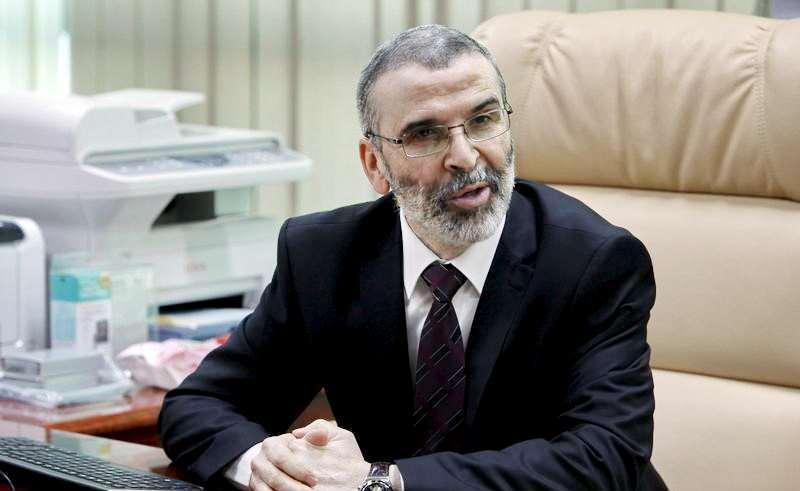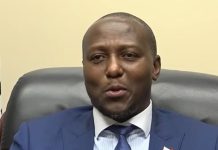Africa-Press – Eswatini. Mustafa Sanalla, who has been the head of Libya’s National Oil Corporation (NOC) since 2014, is a prized contact in Tripoli and abroad. He was responsible for reviving ‘black gold’ extraction, an important source of revenue for the country. However, this development has not been well received by oil minister Mohamed Aoun, with whom Sanalla is engaged in a power struggle.
Oilfield blockades continue to punctuate the mandate of Mustafa Sanalla, head of the National Oil Corporation (NOC). At the end of December, a state of force majeure was declared on the four main fields of Sharara, El Feel, Al Wafa and Hamada, which were blocked by members of the Petroleum Facilities Guard (PFG).
They were protesting Sanalla’s decision to replace Ahmed Ammar, Akakus Oil’s head of operations. This subsidiary of the NOC – a joint venture between Spain’s Repsol, Australia’s OMV, Norway’s Equinor and France’s TotalEnergies – operates the Sharara field. Sanalla is also engaged in a conflict with the NOC’s board of directors, which issued a letter of dissociation on 23 December, targeting his decisions.
Supported by the prime minister
This latest tug-of-war gives ammunition to Mohamed Aoun, the minister of oil, the NOC boss’ main opponent. Twice in less than three months, the minister has gone after Sanalla. Both times he failed.
On 18 October, Aoun demanded that Sanalla be removed from his position as president of the NOC and that an administrative enquiry be opened, accusing him of not having requested the necessary authorisation from his ministry before undertaking contractual negotiations.
The oil company’s supervisory minister had already called for his suspension on 29 August, accusing him of travelling abroad without informing him.
But this open warfare between the two men still has not not diminished the position of Mustafa Sanalla, 60, an experienced chemical engineer who did all his training at the NOC, which he joined in 1985, before taking over in 2014.
Once the head of Ra’s Lanuf refinery (on the coast), he has made oil revival his objective, skilfully dealing with the country’s various political and tribal factions to ensure that crude oil and gas continue to be extracted.
Respected by the NOC’s operational troops, he also continues to have the valuable support of Abdulhamid Dabaiba, the Government of National Unity’s prime minister. The latter acts as a mediator in the conflict between Aoun and Sanalla so that he can maintain power over the operations of the NOC, whose activities generate the country’s main source of revenue.
After the 2011 revolution that led to the ousting of Muammar Gaddafi, the oil sector was almost at a standstill. Today, it has risen from the ashes and currently represents around 65% of GDP. Sanalla has a lot to do with this.
Doubling volumes by 2022
For this reason, the head of the NOC also enjoys attention from the European and US chancelleries and remains an important contact for the heads of the main oil companies active in Libya, including France’s TotalEnergies, Italy’s ENI, and Spain’s Repsol.
Despite recurrent oil infrastructure blockades – due to discontented political-military factions and employee strikes – and their ageing, production has been maintained at an average of 1.2 million barrels per day (b/d) since the beginning of the year.
With a view to reunifying the country and maintaining the ceasefire between the western and eastern Libyan camps, the NOC hopes to double its volumes and reach 2.1 million b/d in 2022. Given the ongoing tensions, this will not be an easy task.
For More News And Analysis About Eswatini Follow Africa-Press







